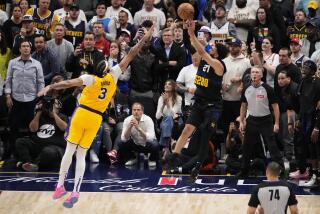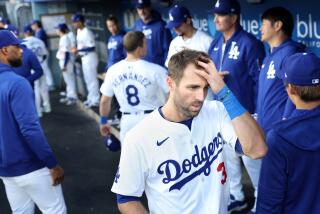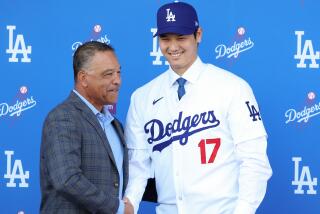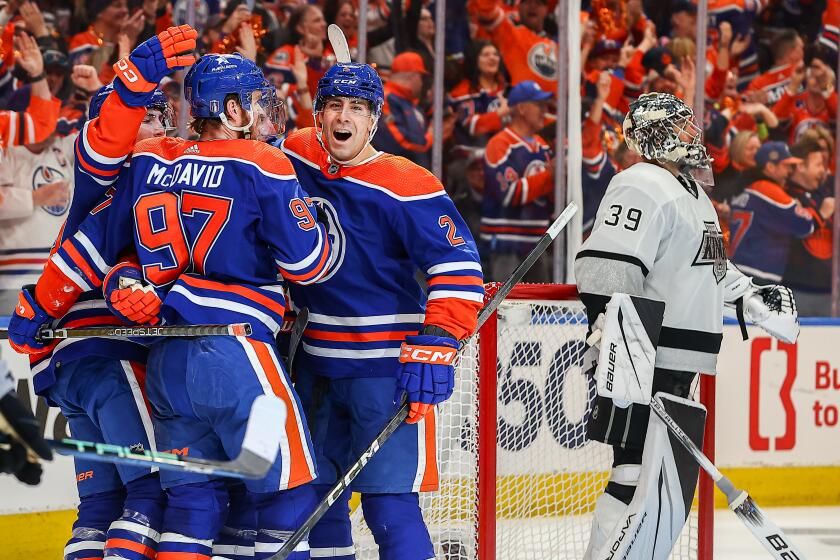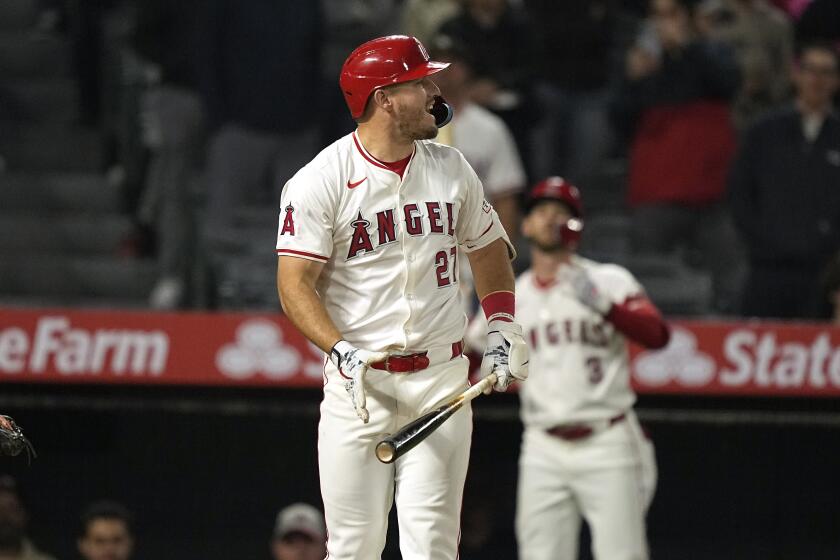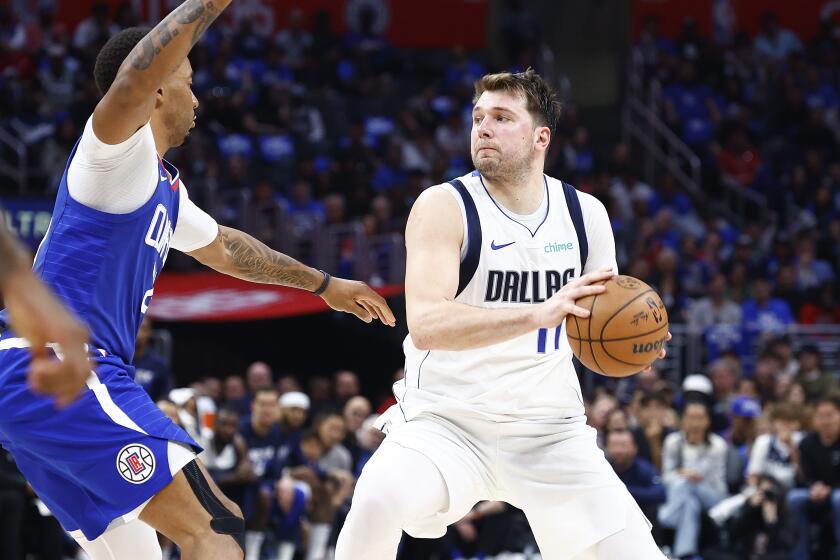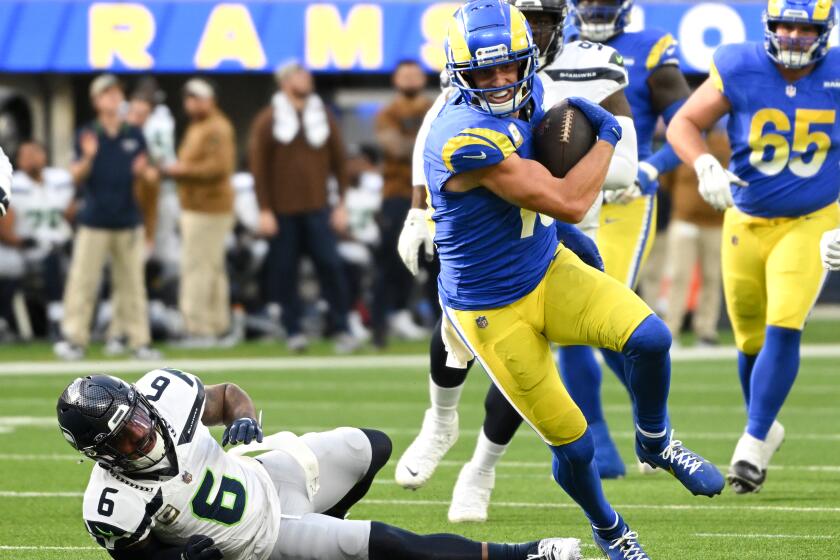A Game of Emotion
The 12-2 New England Patriots, who have a rather important date in New Jersey with the division-rival New York Jets next Sunday, showed the NFL just how poorly they can play — on both sides of the ball — against the 3-11 Miami Dolphins Monday night.
Upset in Florida of all places, 29-28, the Patriots proved that many pro football players, like some amateur tennis players, very often seek (and find) their own level.
When you think you’re evenly matched with the guy across the net, or the line, you tend to play well.
Against a presumed inferior, however, you tend to play not so well.
The NFL’s widespread, widely publicized parity predicament, above which five or six (at most) of the 32 teams are now poking their heads, is in part a manifestation of all that.
The Patriots demonstrated also that the attraction of football rests on its uniqueness as a three-edged challenge. For those who wish to win, this is a game that requires a deep physical, intellectual and emotional commitment. No other sport intimidates, at such depth, in all three respects.
Entirely missing Monday night, on the New England side, was any vestige of emotion or passion; and that made the Patriots two-thirds of a football team. Regardless of what they might have said before the game, or even thought, they couldn’t, in their heart of hearts, get up for a team that has earned hardly any respect from anybody. Could you?
Peyton Hangs On
IF PEYTON MANNING could beat the Baltimore defense — and last Sunday he did, 20-10 — he figures to sail through the San Diego defense in Indianapolis next Sunday in the game of the week. The Chargers and Colts are both 11-3 and playoff-bound division winners, but the Colts have Manning.
Conquering Baltimore was a milestone feat of sorts for the record-chasing Indianapolis quarterback. Going back to his college days, Manning has usually fallen apart in big games or against good teams or strong defenses. Nerves or something. He has feasted only on weak teams. He didn’t feast on the Ravens and didn’t star, but he didn’t come apart, either. That’s what was different.
True enough, the breaks all went Manning’s way that night, and who knows, he might have needed that. It could have ended 13-13 if the Raven kicker hadn’t kicked the ball into a brother Raven.
What’s more, Manning’s only touchdown pass, a 29-yard shot that broke up a 6-3 field-goal duel in the third quarter, was the result not of brilliant execution but of a coach’s sensational, gutsy third-and-one call. The Charger passer, Drew Brees, doubtless noted this, noting also that, for a change, Manning, on a big night, hung together. That was different.
Officials Are Usually Right On
THE RAVENS play defense with enthusiasm, and, as the world knows, often with too much enthusiasm. They tested the officials to the limit the other night in Indianapolis. At one point, on consecutive plays, they committed four illegal-contact fouls on Manning’s receivers. It’s sometimes said that harassed defenses should do that more often, realizing that referees are loath to stop the game with penalties on play after play. So the question was, what will the officials do this time?
What they did was call four consecutive penalties on the Ravens, placing the integrity of the game and of the league over the welfare of the Ravens, who, indeed, are responsible for the NFL’s particular rules-enforcement policy that makes football a spectator-happy pass-offense sport. When the 2000 Ravens injured and knocked out three playoff quarterbacks en route to their only Super Bowl win, the NFL took instant action, outlawing unnecessary quarterback brutality. That upset some coaches but few fans.
Frequently, it doesn’t take much to upset a losing coach. If the officials call nine penalties on his team, eight justified and one marginal or wrong, he sends the league office a film clip of that play and complains about the officials. The truth is that pro football is the most difficult sport to officiate and is done so with more efficiency than any other sport. That’s as much as you should expect.
Tight Ends Year: Good for Gates
THE CHARGERS are one of the teams (one of the 32, it sometimes seems) benefiting in tight-end play from another new rules-enforcement measure that’s keeping unscrupulous defensive players in line this year. By order of Commissioner Paul Tagliabue, who took the decisive action on quarterback brutality in 2001, pass-defense people are no longer allowed to put so much as a hand on pass receivers beyond the five-yard bump zone. The reason: The slightest shove will sometimes ruin an intricate, well-executed pass play.
One result is that defensive teams can restrain good passing teams now only by assigning all their cornerbacks and safeties to wide receivers — one guy short, one deep, on each receiver. A second result is that linebackers, who are always slower than corners, do most of the covering today on tight ends, who are often as fast as wide receivers. The third result, the big serendipitous result, is that this has become Tight Ends Year. All over the league, tight ends, chased by lumbering linebackers, are hitting pay dirt — in the varied meanings of that cliché.
San Diego’s Antonio Gates, a second-year man from Kent State, has become the most famous of the NFL’s new pass-catching tight ends. Uncovered, the tall, 260-pound Gates ran on and on with another touchdown catch Sunday to help passer Brees take down the hapless Cleveland Browns and win the division.
Gates is poised to break some long-standing records. It could be that he is so swift and gifted that he would have stood out in any era, but Tagliabue has taken the illicit chains off and let him play football.
How to Tie Roethlisberger’s Hands
THE PITTSBURGH STEELERS will be at home next Sunday against a Baltimore team that plans to manhandle Big Ben Roethlisberger with the same éclat it showed most of the time Sunday night in attacking Manning. And, in the Eastern-time-zone game of the week, the question of the week is whether that will happen.
Roethlisberger, to win his first and only 12 starts as a pro, has invariably done what he had to do to win — and no more. The “no more” means that his conservative coach, Bill Cowher, keeps sturdy Jerome Bettis running the ball as long as he (Cowher) possibly can, only calling Roethlisberger to the rescue when a game (or a series) seems irretrievably down the drain.
At those moments, Big Ben has been bailing Cowher out with an efficiency suggesting that if his coach had sent the young man out passing in the first quarter, the game would have been over by the second quarter. Last week, for example, when Cowher found himself losing again in the fourth quarter, he finally let Roethlisberger throw consecutive first-and-10 passes on the game-winning drive. The big rookie completed three of four on that march all told — including a 31-yard bomb to versatile Antwaan Randle El — to place the ball inside the New York Giants’ 10-yard line.
From that point, Bettis ran it in, illustrating once more that on must-run downs, he’s as good as any back in the league. The NFL thinks of a must-run down as third and one, third and goal at the one, or any fourth-quarter down to hold a lead. In a wholly different category are the early downs of a would-be 80-yard drive in any of the first three quarters. When the game is on the line, it takes pass plays to sustain a drive of 40 or 50 or more yards against a good NFL defense. Nonetheless, Cowher runs Bettis instead out there, wasting everybody’s time.
Are Steelers on the Way with Big Ben?
STEELER GAME PLANS require Roethlisberger to complete third-down passes — the toughest type for an NFL passer to hit — after Bettis has failed to produce more than five yards on the early downs of a Steeler drive. Fact is, the Steeler offense is based on a simplistic formula: How far can Bettis run on downs 1 and 2? Can Roethlisberger convert on down 3?
That’s a nutty way for grown men to play football, but it is Cowher’s way, and Roethlisberger does his part so well that he keeps improving as a quarterback with all the passing experience he’s getting on those difficult third-down plays.
Thus, it could be that, except for Baltimore in 2001 — and that’s a different kind of story — Pittsburgh will become the first run-and-defend team to win the Super Bowl in the passing era that began in the 1980s. That is, the Steelers could be the first modern winner relying on defensive players, run blockers and ballcarriers to beat a talented passing team. It could happen because of the skills Roethlisberger has shown and the success he’s had when asked to fire away every once in a while. A run-and-defend team finally has a passer who could star on passing teams, in spite of which Cowher still wants to run. Incomprehensible.
Giants Unleash the Best Manning
THE GIANTS may have the better of the two Mannings. It seemed so even when Eli Manning began his pro career unsuccessfully at midseason under another one of those coaches who’d really rather run, Tom Coughlin, and even though he hasn’t had world-class support except for running back Tiki Barber. And it seemed possible again last week when Eli held Big Ben to 33-30 and led him twice in the final quarter.
In a rollicking second half, which began with Pittsburgh leading by six points, Eli brought the Giants down the field three times altogether. The first time, Coughlin grounded him and played for a field goal, paring Pittsburgh’s lead to 20-17, after which Pittsburgh stretched out to 23-17.
Next, Coughlin let the kid throw, and after opening with a 49-yard first-and-10 bomb to wide receiver David Tyree, Eli kept throwing on every play until he had a 24-23 lead.
Now it was Cowher’s turn to play for a field goal, which he got (26-24) while hoping against hope that that would be enough to topple the Giants’ brazen young upstart rookie quarterback. But it wasn’t.
Taking over at midfield, Eli, getting the green light again from Coughlin, advanced the Giants with five completions on six plays to the Steeler one-yard line, where Barber, a relentless goal-line runner, ran it over. And the Giants led again, 30-26.
Alarmed now with the game winding down, Cowher, on the plays mentioned above, begged Roethlisberger to pull it out with a few good passes, which he did. For Big Ben and Eli, it had been a stressful second half. For football fans, it was what football could and should be.
More to Read
Get our high school sports newsletter
Prep Rally is devoted to the SoCal high school sports experience, bringing you scores, stories and a behind-the-scenes look at what makes prep sports so popular.
You may occasionally receive promotional content from the Los Angeles Times.
